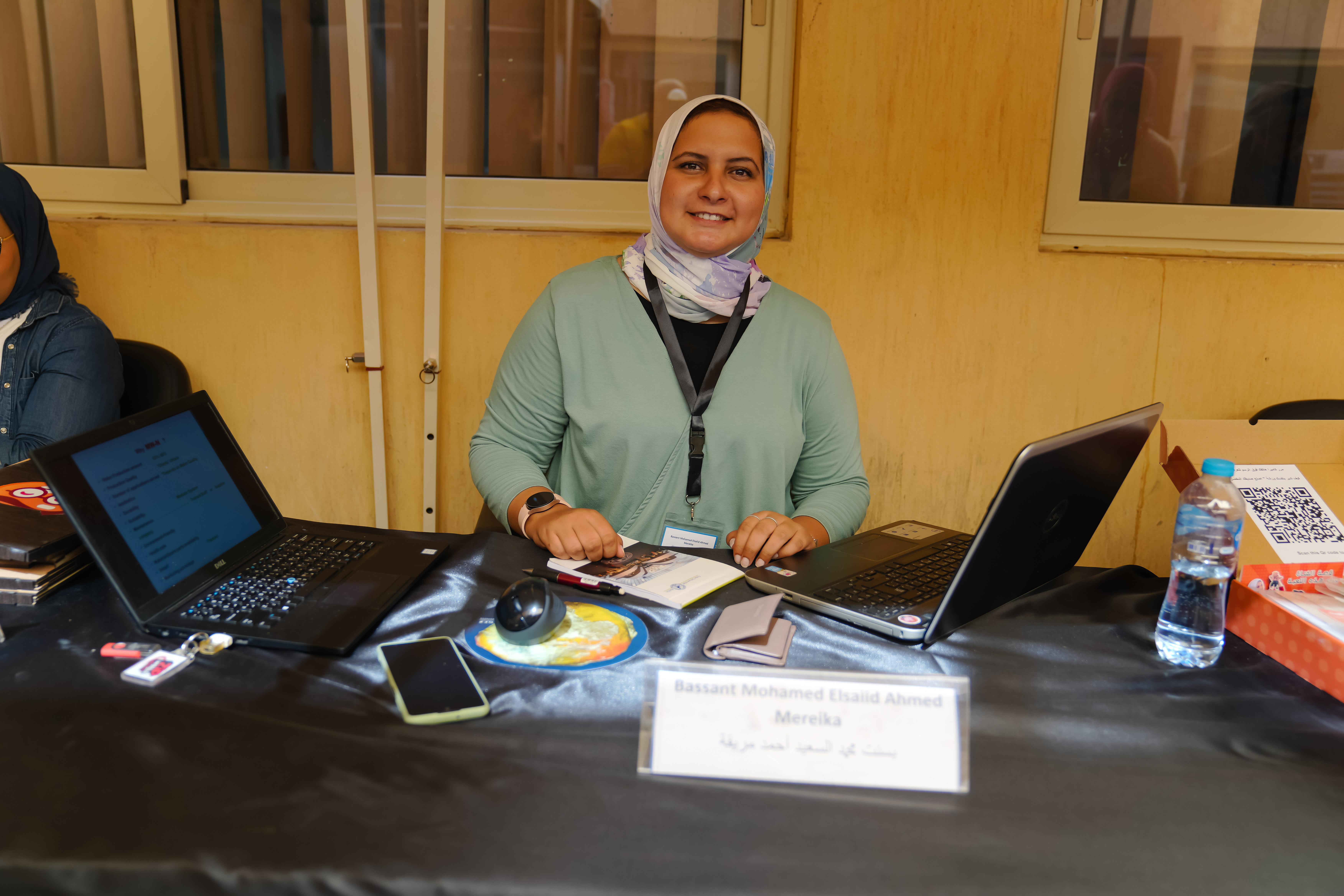Take Five: “Now is the best time for women to influence and lead businesses”
Date:
Bassant Mereika founded and is the CEO of MW-N company, which provides contracting services to design, supply, install, operate, and maintain top quality Egyptian water alternative resources systems in buildings and landscape. Bassant Mereika’s project aims at raising awareness about rationalizing water consumption.
Bassant is one of the women entrepreneurs who participated in the trainings and services provided by the UN Women/UNIDO Joint Programme “Rabeha” which means “She Wins” in Arabic. This programme is implemented in partnership with the National Council for Women, the Ministry of Trade and Industry and the Micro, Small and Medium Enterprises Development Agency (MESMEDA), with the generous support of the Government of Canada. Within the framework of the "Rabeha" programme, technical support is provided to women entrepreneurs in cooperation with various partners in the field of business development, including the American University in Cairo’s Centre for Entrepreneurship and Innovation, who implemented Bassant’s training.

- Please brief us on your project and when did you first decide to work on climate change?
My project name is ‘MW-N’ which means in Ancient Egyptian “Hieroglyphic” {Our Water}. ‘MW-N’ is a contracting service that helps in saving 50% - 80% of purified drinking water supplied to buildings, in addition to providing alternative systems for landscape irrigation through using undrinkable water instead. For more than 10 years, I have been studying water resources challenges and opportunities and one of the solutions proposed by my company is feasible water alternative resource systems.
Ahead of establishing ‘MW-N’, I had founded an initiative called ‘NABTA’, which aimed to increase the public’s awareness about water consumption, highlighting the solutions. ‘NABTA’ also worked on increasing urban green spaces and planting trees in all the streets of the targeted areas of the initiative in order to tackle climate change through improving air quality and rationalizing water consumption thus reducing the water footprint of a community. After the great success of ‘NABTA’, I founded ‘MW-N’ to officially introduce my business to the Egyptian market to improve water efficiency and save 50%-80% of purified water.
- What were the main challenges that you encountered at the beginning of your journey and were there other challenges related to establishing a woman-led startup?
Today, people are aware that we’re facing a problem with water. However, we also need people to be aware of the solutions, such as the ones offered by my business.
As a women-led startup, I did face some challenges at the beginning with some interviews during the market research phase, as many believed that a woman cannot handle such issues or initiate a business to tackle a challenge with such scale. However, by the end of each interview, most were encouraging me to go forward, spread the word and implement ‘MW-N’ services in all cities and neighborhoods in Egypt.
- How did ‘Rabeha’ programme help you as a female entrepreneur?
The programme truly helped me on different levels. First of which, it introduced me to knowledge related to business management in the simplest possible way. It also motivated me to take concrete actions to enhance my business, through the support offered by very professional instructors and mentors. The Rabeha instructors provided important, needed information and guidance that helped participants apply what they learned practically in their initiatives and businesses. Finally, I was impressed by the prompt mentorship services offered and the follow-up sessions received after the training. In addition, I benefited from the sessions that introduced us to digital tools and enhanced our digital skills to help us grow our business.
- Can you tell us more about your future plans?
The emphasis on decentralized alternative water supply systems has increased considerably. Therefore, I am currently working on expanding ‘NABTA’ initiative as a participatory project to be supported by all community stakeholders to raise the public’s awareness, improve water usage patterns, and promote water saving techniques and water alternative systems. For ‘MW-N’, the systems will be promoted very soon with highly developed features which will hopefully serve new targeted segments and wider geographical areas.
- What would be your advice to new entrepreneurs? Especially women and girls?
The number of success stories I was exposed to during my journey with ‘Rabeha’ programme made me and others believe that women are capable of achieving anything regardless of their living conditions. My only advice to women entrepreneurs is to put aside their fears and doubts and just start. Now is the best time for women to influence and lead businesses, and this is key in the work of women’s empowerment in all areas of life.